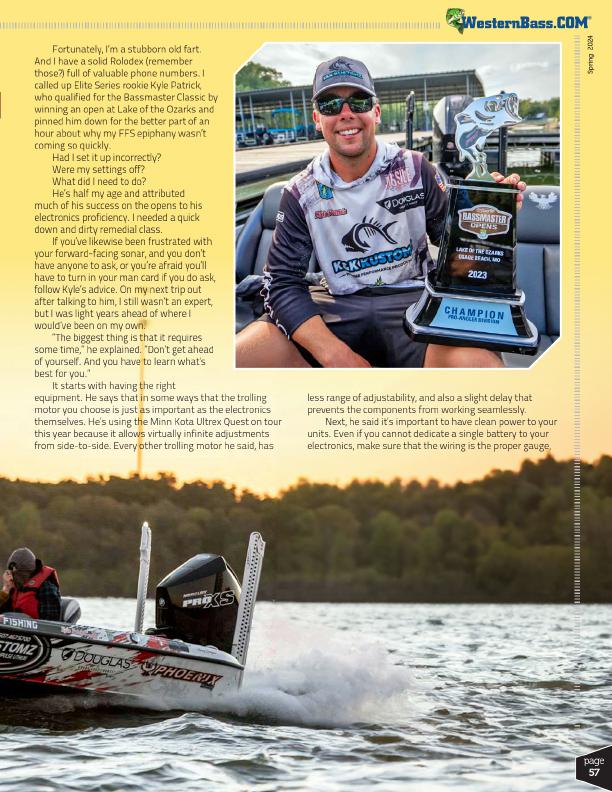
Spring 2024
Fortunately, I’m a stubborn old fart. And I have a solid Rolodex (remember those?) full of valuable phone numbers. I called up Elite Series rookie Kyle Patrick, who qualified for the Bassmaster Classic by winning an open at Lake of the Ozarks and pinned him down for the better part of an hour about why my FFS epiphany wasn’t coming so quickly.
Had I set it up incorrectly?
Were my settings off?
What did I need to do?
He’s half my age and attributed much of his success on the opens to his electronics proficiency. I needed a quick down and dirty remedial class.
If you’ve likewise been frustrated with your forward-facing sonar, and you don’t have anyone to ask, or you’re afraid you’ll have to turn in your man card if you do ask, follow Kyle’s advice. On my next trip out after talking to him, I still wasn’t an expert, but I was light years ahead of where I would’ve been on my own.
“The biggest thing is that it requires some time,” he explained. “Don’t get ahead of yourself. And you have to learn what’s best for you.”
It starts with having the right equipment. He says that in some ways that the trolling motor you choose is just as important as the electronics themselves. He’s using the Minn Kota Ultrex Quest on tour this year because it allows virtually infinite adjustments from side-to-side. Every other trolling motor he said, has
less range of adjustability, and also a slight delay that prevents the components from working seamlessly.
Next, he said it’s important to have clean power to your units. Even if you cannot dedicate a single battery to your electronics, make sure that the wiring is the proper gauge,
®
page
57